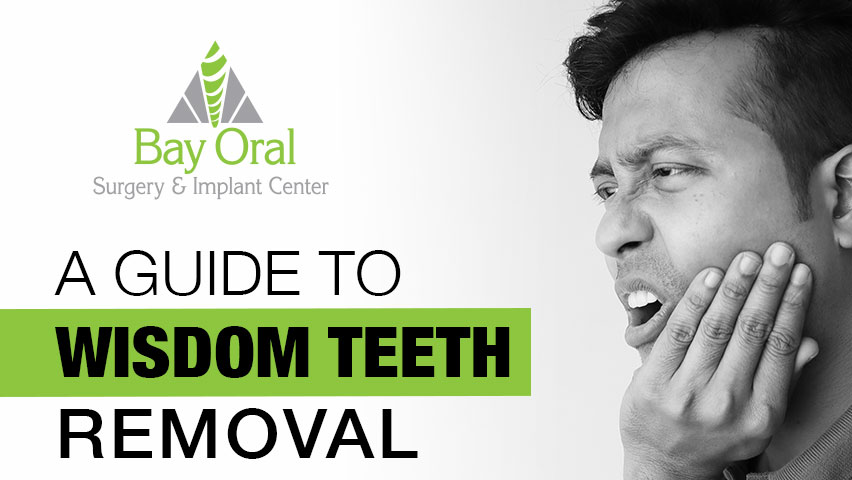
by Bay Oral Surgery | Oct 13, 2020 | Blog

Wisdom teeth, or third molars, are the last teeth to develop and appear in your mouth. The average mouth is made to hold only 28 teeth. These four extra teeth are your third molars. Early, preventative removal in teenage years is recommended to eliminate possible, future complications.
When should I have my wisdom teeth removed?
Wisdom teeth surgery is necessary when these teeth do not have room to properly erupt within the mouth. This typically occurs between the ages of 17 & 25. They may grow sideways, partially emerge from the gum, and even remain impacted and trapped beneath the gum and bone. When they are partially erupted, the opening around the teeth allows bacteria to grow and eventually causes an infection. The pressure from the erupting wisdom teeth may also move other teeth and disrupt their natural alignment. The most serious problem occurs when tumors or cysts form around the impacted wisdom teeth, resulting in damage to the jawbone and healthy teeth.
With an oral examination and x-rays, Bay Oral Surgery & Implant Center can evaluate the position of the wisdom teeth and catch potential problems. Studies have shown that early evaluation and treatment can prevent complications and decrease the surgical risk involved with the procedure.
Do I need sedation or anesthesia?
In most cases, the removal of wisdom teeth is performed under local anesthesia or deep sedation. These options, as well as the surgical risks, will be discussed with you before the procedure is performed. Once your wisdom teeth have been removed, you will rest under our supervision in the office until you are ready to be taken home. Upon discharge, additional instructions for care at home will be given.
What’s the cost of wisdom tooth extraction?
Wisdom tooth extraction costs vary depending on the number of teeth and their state of eruption. Given that every case is different, it’s difficult to quote a price without consulting one of Bay Oral Surgery’s expert oral surgeons first.
How is recovery after wisdom tooth surgery?
Pain, swelling and some bleeding is normal after wisdom teeth removal. Take it easy for a couple of days, avoid brushing near the healing area and eat what is comfortable, but softer foods are typically easier for the first few days.
If you have any questions or would like to schedule for your wisdom teeth removal, please call us at (920) 499-0471.

by Bay Oral Surgery | Sep 21, 2020 | Blog

Proper care and healing of your surgical site after undergoing oral surgery is important, and with that comes a lot of questions, which is to be expected. Here are some common post-operative questions from patients:
Can I eat after surgery?
Adequate food and fluid intake after oral surgery is important. Please eat whatever is comfortable to you; however, you may find that softer foods are easier (ex. jello, pudding, applesauce, ice cream, yogurt, cottage cheese, mashed potatoes, noodles, etc). If you are required to be on a no-chew diet, your doctor will provide you with dietary instructions.
Can I brush my teeth like normal after surgery?
On the day of your surgery, do not spit or rinse your mouth. You can use a wet toothbrush to clean your teeth, but do not use toothpaste.
On the day after oral surgery, you can brush your teeth as you normally would again. When brushing, be gentle in the extraction sites as they may be tender for a few days following the procedure. Brush as well as you can and rinse with salt water to aid in healing (1/2 teaspoon table salt in 8 oz warm water) 2-3 times per day. The use of commercial mouthwash is not recommended during the healing period.
A syringe, if provided, should not be used until one week after surgery. Use it to flush out the extraction site(s) as often as needed.
How do I know if I have a dry socket?
A dry socket (alveolar osteitis) is a painful dental condition that can occur after the extraction of a permanent adult tooth. It can occur at the site of the tooth extraction when the blood clot has been dislodged or has dissolved before the wound fully heals. Exposure of the underlying bone and nerves due to a dry socket results in severe pain. Pain that radiates from the socket to your ear, eye, temple, or neck on the same side of your face as the extraction is a common symptom. Your pain medication may not be as effective. To help minimize the potential for a dry socket:
- Do not use a straw for one week following surgery
- Do not spit or smoke for a least 3-5 days following surgery
How do I avoid an infection and/or how do I know if I have an infection?
Due to the enormous amount of bacteria or germs in the oral cavity, infections do sometimes occur following oral surgery. They usually can be treated simply, and they rarely reappear. To avoid further complications or problems, it is imperative that you follow these instructions:
- Take the antibiotic pills as directed and do not discontinue them until finished with the entire prescription or until the doctor tells you to do so.
- Applying moist heat over the swollen area is usually beneficial.
- Hourly warm salt water rinses are very helpful. Do not disturb your sleep to do this.
- Once treatment is started, you should see a decrease in the swelling and pain within 48-72 hours.
- If the swelling severely limits your ability to open your mouth or causes difficulty with swallowing or breathing, call our office immediately and/or go to the emergency room at the nearest hospital.
- It is imperative that you keep follow-up appointments, and report any significant changes in the pattern of swelling or pain immediately.
- It is not unusual to run a low-grade temperature. Be sure to drink plenty of fluids. Call our office if your temperature exceeds 100 degrees orally.
- It is important to understand that failure to follow any of the instructions as indicated above may result in serious complications, significant detriment to your health, and in some cases may be life-threatening. Your doctor is available to answer any questions concerning your surgery.
Is it normal to be in pain after surgery?
Most routine extractions do not cause much discomfort after the procedure. Over-the-counter medication should relieve your discomfort, unless you have been instructed by your physician not to use them. Taking 600mg of Ibuprofen (i.e. Advil, Motrin) every 6-8 hours will usually provide sufficient relief from pain and swelling. Another good pain reliever is Acetaminophen (Tylenol). If you are given a prescription for pain, please take it as directed. If needed, you may supplement your prescribed pain medication with Ibuprofen (ex. 1/2 tab prescription pain reliever and 3 hours later 600 mg of IBU, Motrin, or Advil).
- Pain is expected after surgery but should be managed with pain medication. If the pain is not manageable, please contact our office at (920) 499-0471.
- If an antibiotic was given, please take as directed. Because antibiotics taken orally can reduce levels of beneficial bacteria, you may want to take yogurt or acidophilus tablets.
- If sutures are used, they will dissolve on their own usually within 2 days but can last for up to 4 weeks.
- During healing, it is common to notice small bone fragments working their way through the gums. These bone chips will fall out on their own, or they can be removed if they are bothersome.
For more post-operative care instructions, visit our post-op page on our website. If you have any questions after your surgery at Bay Oral, please contact us. We are here to help!
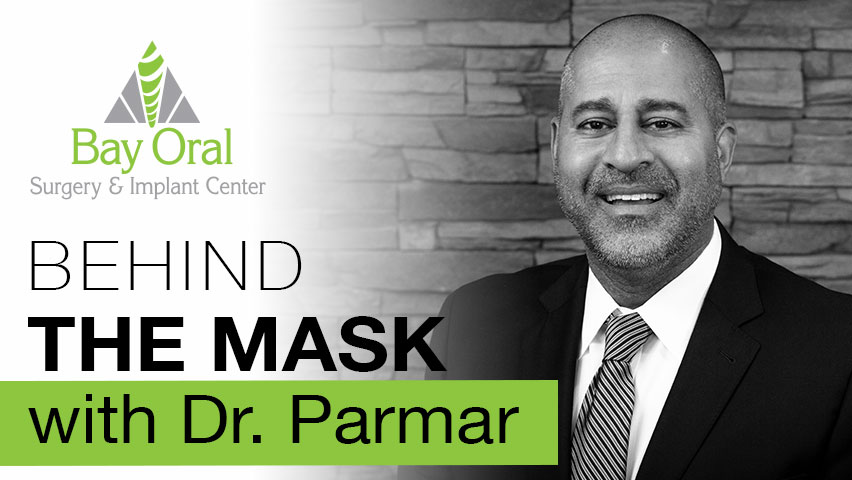
by Bay Oral Surgery | Aug 17, 2020 | Blog

Dr. Parmar attended Marquette University School of Dentistry from 1990-1994, did his general practice residency at the VA Hospital of Milwaukee from 1994-1995, and completed his Oral & Maxillofacial Surgery Residency at the Medical College of Wisconsin from 1995-1999. He has been with Bay Oral since 1999.
With 21 years of expertise, Dr. Parmar reflected a little bit on why he decided to get into the oral surgery field and what he loves about being an oral surgeon:
“I always wanted to be in the healthcare field, and the specialty of oral surgery seemed one of the more challenging so I was drawn to it.
I love getting to help people whose mouth is incomplete; to make them feel whole using both modern, state-of-the-art technology and basic, tried-and-true concepts of healing.”
Dr. Parmar has many professional memberships and affiliations, including:
- Wisconsin Dental Association
- Wisconsin Society of Oral & Maxillofacial Surgeons
- American Dental Association
- American Association of Oral & Maxillofacial Surgeons
- American College of Oral & Maxillofacial Surgeons
- American Academy of Implant Dentistry
- Board Certified Diplomat, American Society of Dental Anesthesiologists
He’s also the past President of the Brown-Door-Kewaunee Dental Society and past board member of Donated Dental Service.
A glimpse at Dr. Parmar’s personal life:
“I am married with 3 kids (pictured below). We enjoy skiing and being up north when we have free weekends.”

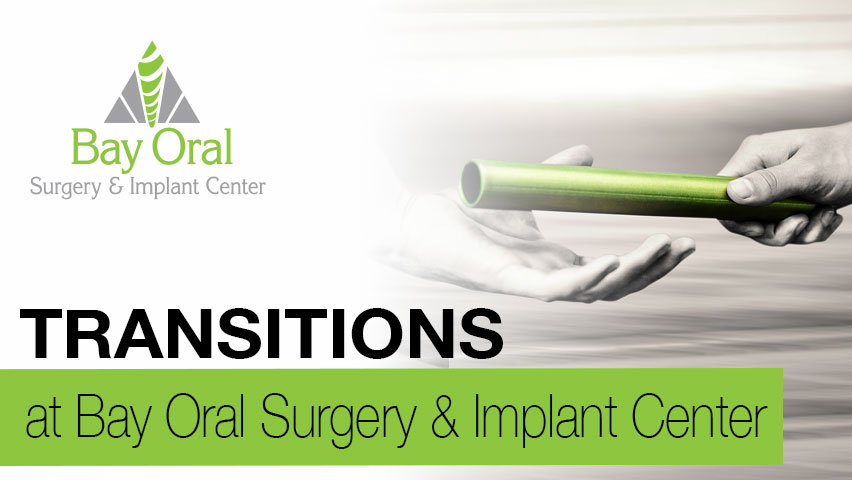
by Bay Oral Surgery | Jul 17, 2020 | Blog

Our beloved Ellen Greene has retired from her position as our Practice Administrator of 23 years, and we welcome Amy Kozloski as our new Practice Administrator!
We had to say goodbye to Ellen at the start of the COVID-19 pandemic, so unfortunately we were unable to give her the proper send-off to celebrate her innumerable contributions to Bay Oral.
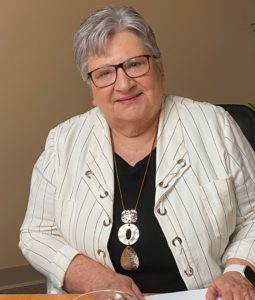
Here’s what Ellen had to say about her time at Bay Oral and her plans in retirement:
“For the last several years, people have asked me when I’m going to retire. My answer each and every time has been, ‘Why would I leave the perfect job?’ And in every way it has been the perfect job. Working for and with people you respect, admire and like is a gift to be appreciated, and I do!
We have been through it all together. Marriages, births, deaths, illnesses, recoveries, saying goodbye to old friends, saying hello to new team members, new doctors, new clinics, new technology. My memories are the celebrations. Lunches, after work events, parties, baby showers, really any reason to gather and laugh at the antics of ourselves but let’s be honest mostly the antics of the doctors: ‘Remember the time….’
How have we changed over the 23 years I have been at Bay Oral? Yes, we have grown, we have expanded, we have embraced new technology but fundamentally we haven’t changed at all. I accepted this position because it was evident that caring and compassion are the cornerstones. How can I help, what can I do for you, do you need anything, let me take care of that for you – these are the words that echo for me.
I will still volunteer, specifically at CASA of Brown County if they accept me. I will still travel, specifically to visit my friends Mark and Ron in Grants Pass, Oregon and Dave and Pat in Naples, Florida. I also want to take the Nordland train from Trondheim to Bodo Norway, which crosses the Arctic Circle. And I am definitely looking forward to building relationships and friendships along the way.”
Before Ellen retired, she had a key role in choosing her replacement, and she knew Amy was the perfect fit for Bay Oral. Amy started at Bay Oral in December 2019 and was able to spend a few months with Ellen before her retirement.
Introducing Amy Kozloski, our new Practice Administrator!

Here’s a little bit about Amy:
“I graduated from UW-Oshkosh with a business degree. After graduation, I worked for 13 years at Principal Financial Group where we worked with companies who are employee owned through an Employee Stock Ownership Plan (ESOP). I managed a team of retirement administrators spread throughout the country. Since my goal was to work in Green Bay, I left Principal to work at my family’s real estate company where I was doing commercial real estate and commercial property management for just over a year. That is when the opportunity at Bay Oral presented itself and I was excited to become a part of the team!
I’m trying to quickly learn as much as possible about the dental industry! The team has been very patient with my questions of “why” and stopping people in discussions to get further explanation on certain procedures.
My favorite thing about working a Bay Oral is working with a great team! The doctors are fantastic to work with and the team is a great group of people! Everyone takes a lot of pride in what they do and is always working toward providing the best patient experience they can!
I have 3 kids (ages 11, 9, and 6) who keep my husband and I very busy with their activities! We love watching their swim meets, softball/baseball games, basketball games, football games, and dance recitals!”
We are very proud to have Amy leading us. Our future looks bright! Welcome to the Bay Oral team, Amy!
Ellen, we wish you a very happy retirement, one that is as wonderful as you are!
by Bay Oral Surgery | Mar 2, 2020 | Blog
In honor of National Dental Assistant Recognition Week, which is March 1st-7th, 2020, we want to recognize our fabulous staff of Surgical Assistants at Bay Oral Surgery & Implant Center! We have a staff of 16 Surgical Assistants across all four of our Bay Oral offices: Green Bay West, Green Bay East, Marinette & Niagara. Some of our assistants split their time between multiple offices. They are a great staff and we are very proud of them. As Dr. LeMoine stated: “Our Surgical Assistants work hard every day to provide the best possible experience for our patients and for us (the doctors). We couldn’t work without them!”
Meet the Bay Oral Surgical Assistants and learn more about them below.
Kayla Boettcher
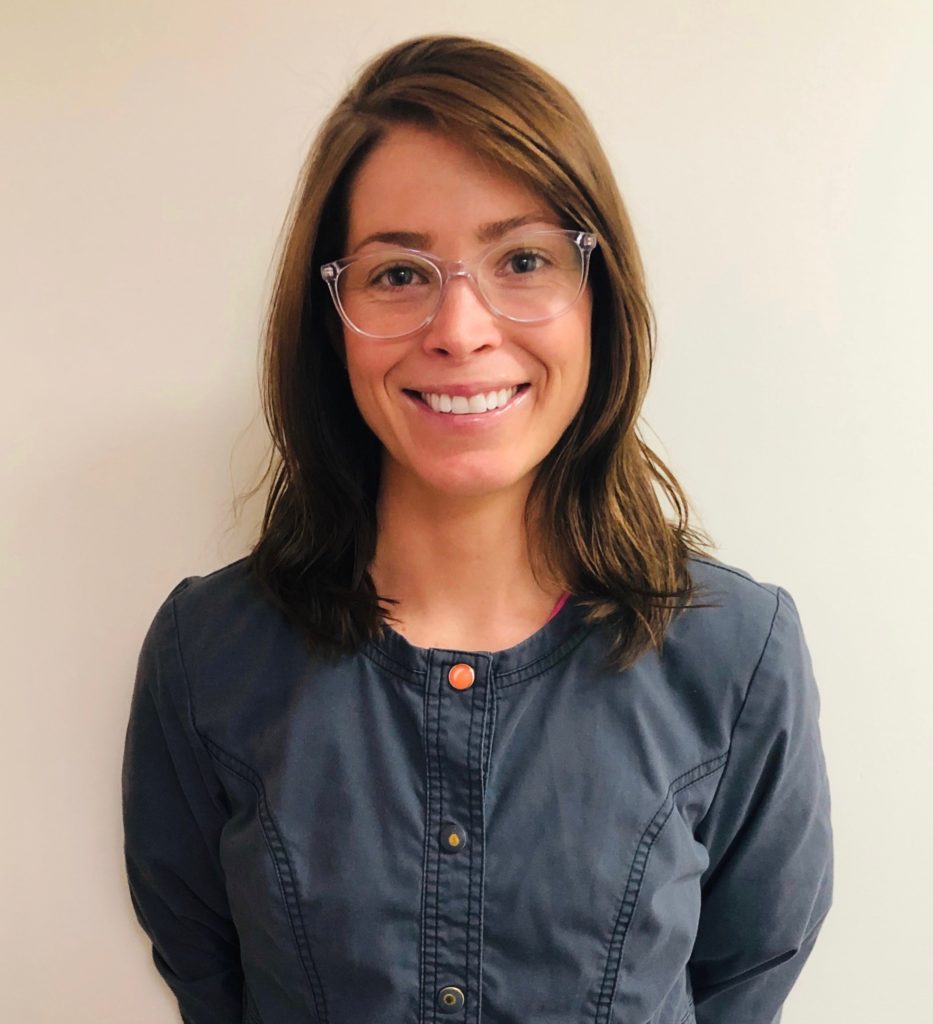
Which locations do you serve?
I work primarily in the Marinette & Niagara offices.
How long have you been with Bay Oral?
I’ve been with Bay Oral for 3 years and in the dental field for 10 years.
What is your favorite thing about being a surgical assistant?
I enjoy working for a well-respected company.
What is a fun fact about yourself that people may not know?
I’m running my first half-marathon in May.
Megan Dax

Which locations do you serve?
I work primarily at both Green Bay offices.
How long have you been with Bay Oral?
I started at Bay Oral on November 1st 2010, right after graduating as a surgical tech, so 9.5 years.
What is your favorite thing about being a surgical assistant?
I love being able to work directly with each patient, one-on-one, while still actively participating in the surgeries. The variety of surgeries that we do keeps our day interesting, fun, and keeps us focused.
What is a fun fact about yourself that people may not know and/or your favorite hobbies?
My boyfriend and I raise chickens, hunt, fish, and garden. We process all of our own wild game, which we eat year-round, making our own steaks, jerky, bacons, summer sausages, etc. We also process and freeze our garden vegetables so we have them year-round as well and have fresh farm eggs everyday. This keeps our grocery bills and visits very minimal and infrequent!
Valerie Delebreau
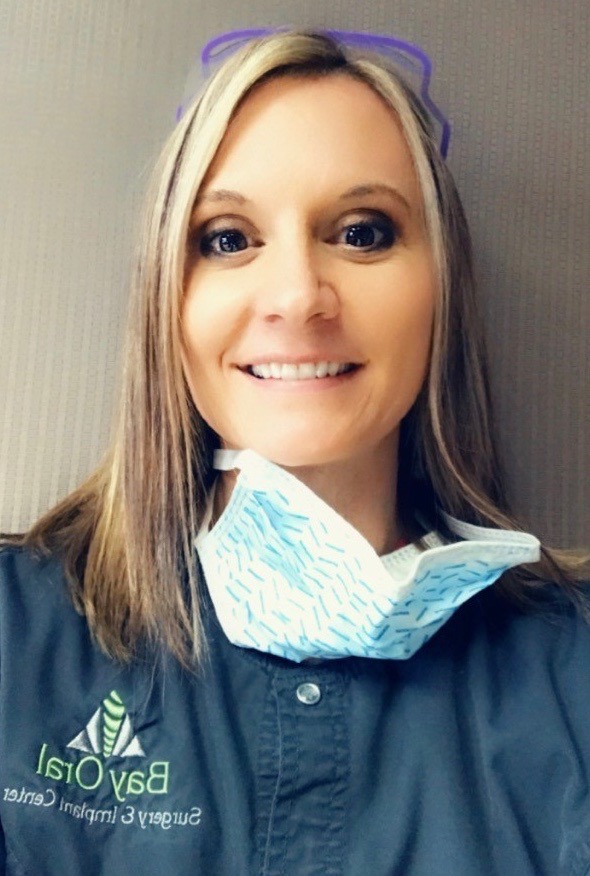
Which locations do you serve?
I work in the Green Bay offices.
How long have you been with Bay Oral?
I’ve been working at Bay Oral for almost 21 years.
What is your favorite thing about being a surgical assistant?
I love the people I work with at Bay Oral and everyday presents something new that makes coming to work a great experience.
What is a fun fact about yourself that people may not know and/or your favorite hobbies?
We have 3 kids and I enjoy watching them participate in all of their sporting events.
Amanda Dorner
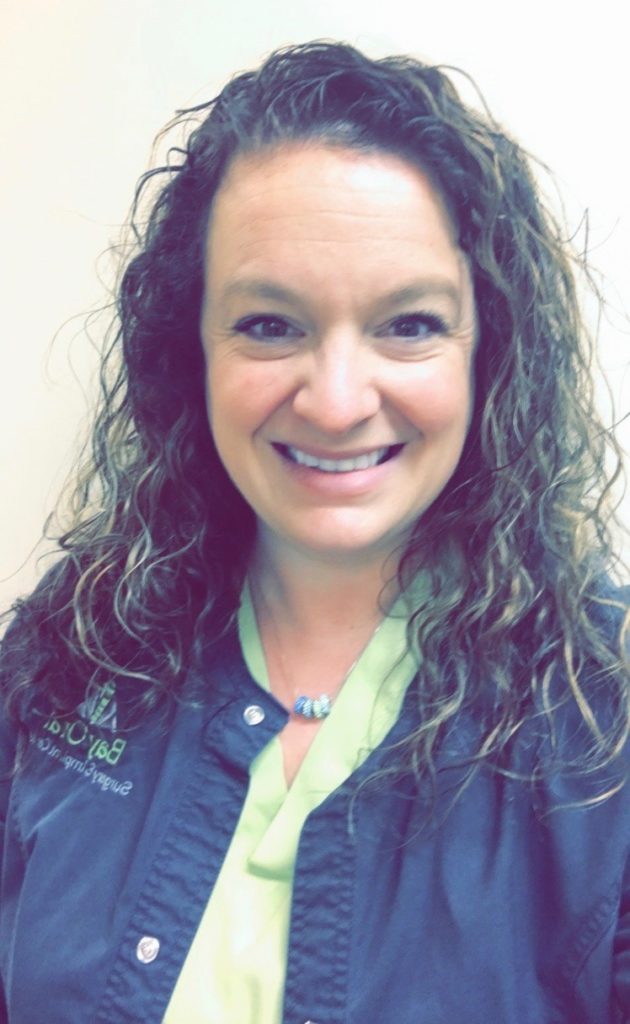
Which locations do you serve?
I work at all of the clinics: Green Bay East, Green Bay West, Marinette and Niagara.
How long have you been with Bay Oral?
I’ve worked at Bay Oral for 17 years, since January 27, 2003.
What is your favorite thing about being a surgical assistant?
I enjoy the fast pace of the clinic and that every patient and surgery is unique.
What is a fun fact about yourself that people may not know?
I’ve been with my husband since I was 16 years old, so we’ve been together for 21 years. Also, I was involved in a golfing accident at the age of 12 and knocked out my 2 front teeth and that’s what inspired me to go into the dental field.
Susan Dzurick

Which locations do you serve?
I work at the Marinette location.
How long have you been with Bay Oral?
I’ve been working at Bay Oral for 17.5 years and in the dental industry for 30 years.
What is your favorite thing about being a surgical assistant?
My favorite thing is the variety of patients I get to work with and see.
What is your favorite hobby?
I enjoy spending time with my 3 horses.
Missy Francois
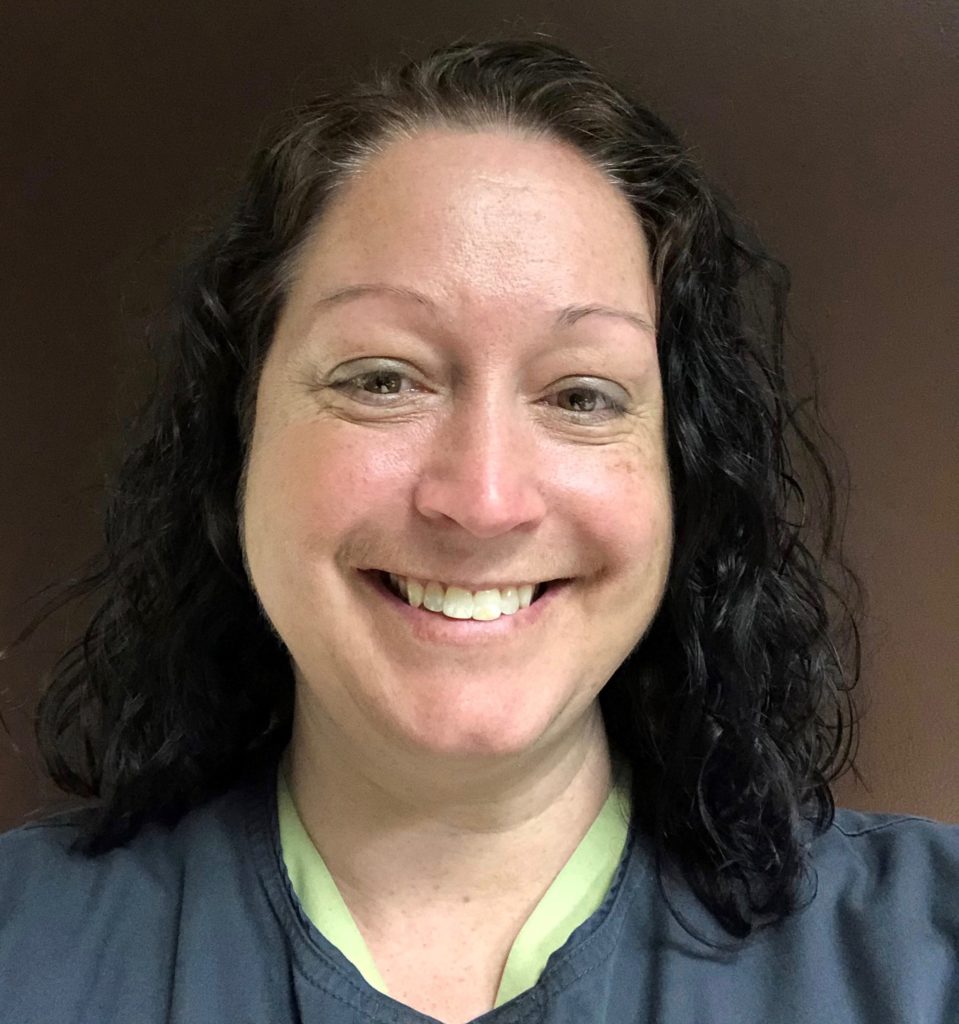
Which locations do you serve?
I work at the Green Bay West location.
How long have you been with Bay Oral?
I’ve been with Bay Oral since May of 1997, so almost 23 years.
What is your favorite thing about being a surgical assistant?
I like the patient interaction–every patient is a new experience and I love the variety of procedures we perform.
What is a fun fact about yourself that people may not know and/or your favorite hobbies?
I love wrestling! My sons wrestle, so my hobby/past-time is watching my guys wrestle.
Nikki Goral

Which locations do you serve?
I work at all four Bay Oral locations.
How long have you been with Bay Oral?
I’ve been with Bay Oral for 14 years.
What is your favorite thing about being a surgical assistant?
I enjoy the people I work with and getting to know patients.
What is a fun fact about yourself that people may not know?
I’m obsessed with food!
Lindsay Hazaert
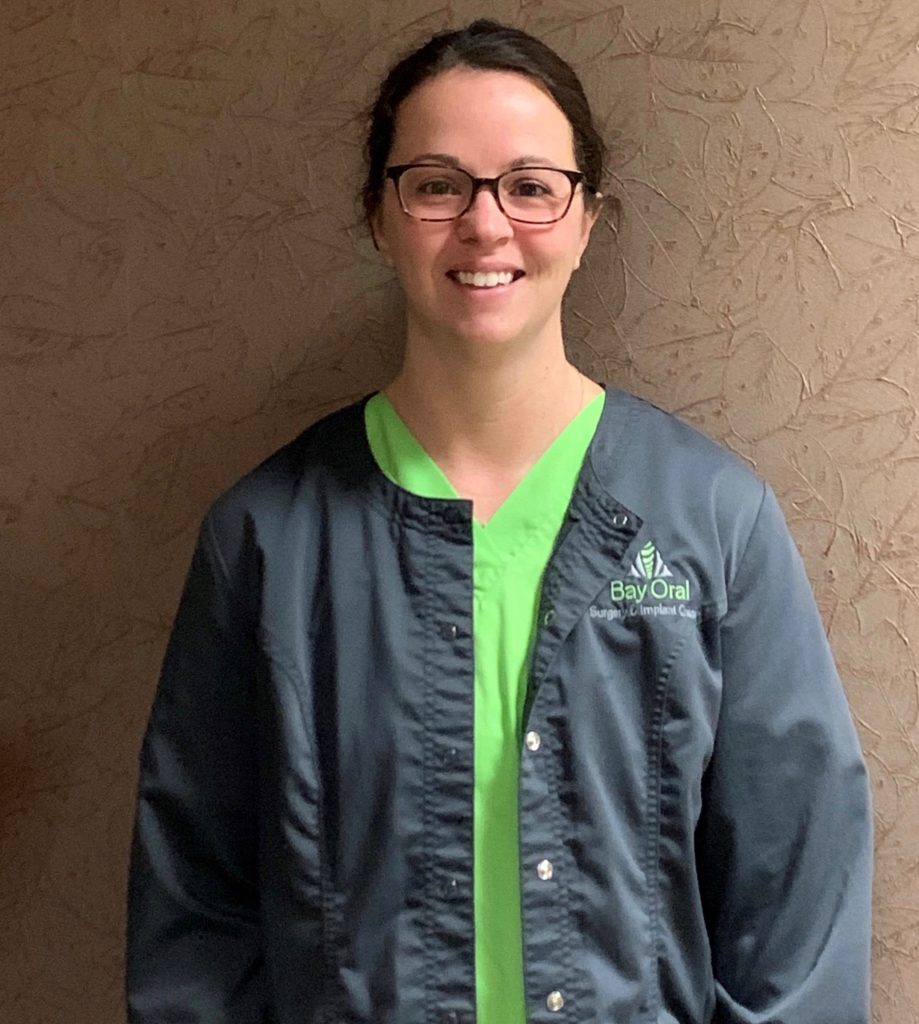
Which locations do you serve?
I work at all four locations, but primarily the Green Bay clinics.
How long have you been with Bay Oral?
I’ve been with Bay Oral for 3 years & have worked in the dental industry for 10 years.
What is your favorite thing about being a surgical assistant?
My favorite thing is interacting with the patients.
What is a fun fact about yourself that people may not know and/or your favorite hobbies?
I’m from Nebraska and I love to travel.
Nicole Herrala
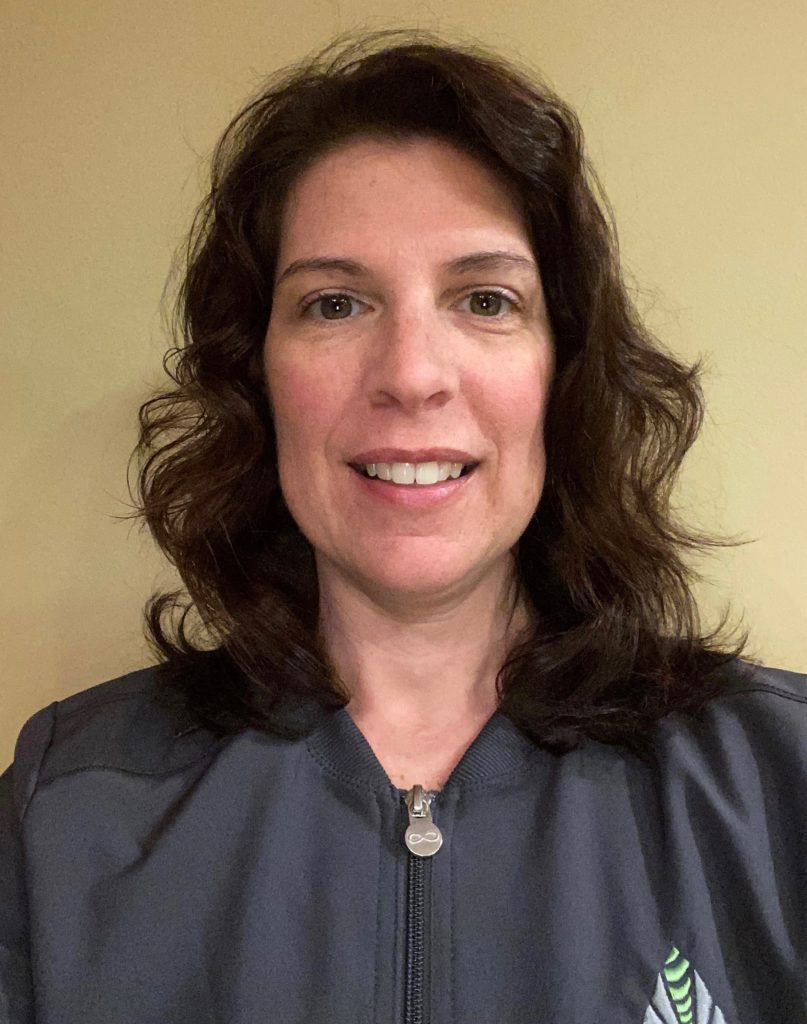
Which locations do you serve?
I work at all four clinics, but mostly the Green Bay West location.
How long have you been with Bay Oral?
I’ve been with Bay Oral for 18 years.
What is your favorite thing about being a surgical assistant?
Patient care is one of my favorite things about being a surgical assistant.
What are your favorite hobbies?
When I’m not cheering on my daughter in basketball and softball tournaments, I enjoy snowshoeing, biking and beach vacations.
Kaitlin LaChapelle

Which locations do you serve?
I work at all Bay Oral locations.
How long have you been with Bay Oral?
I’ve been with Bay Oral for 5 years, since January 2015.
What is your favorite thing about being a surgical assistant?
My favorite thing about being a surgical assistant is working directly with the doctors and the hands-on patient care.
What is a fun fact about yourself that people may not know?
I am an identical twin.
Brenda Lane
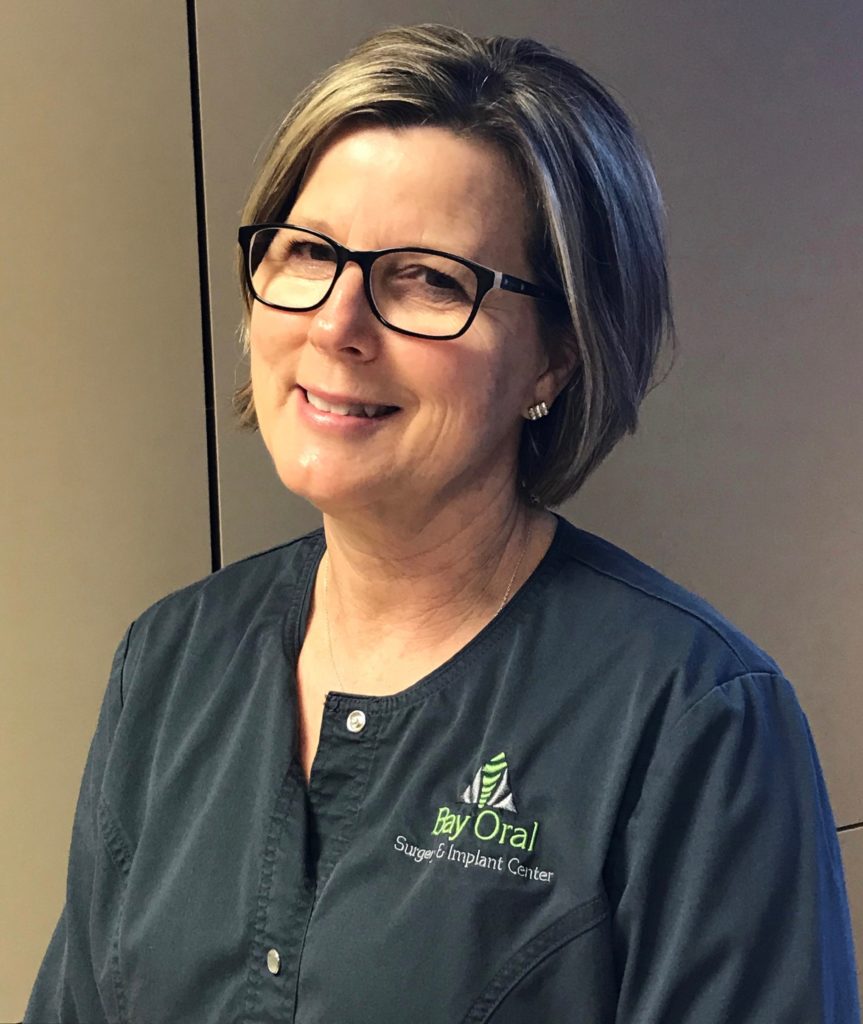
Which locations do you serve?
I work at both Green Bay locations and fill-in at the Marinette location as needed.
How long have you been with Bay Oral?
I’ve been in the oral surgery industry for 13.5 years.
What is your favorite thing about being a surgical assistant?
I like meeting new people and making patients feel at ease; I also really like the doctors and co-workers at Bay Oral.
What are your favorite hobbies?
In my free time I enjoy reading, snowshoeing and kayaking.
Bridgette Luby
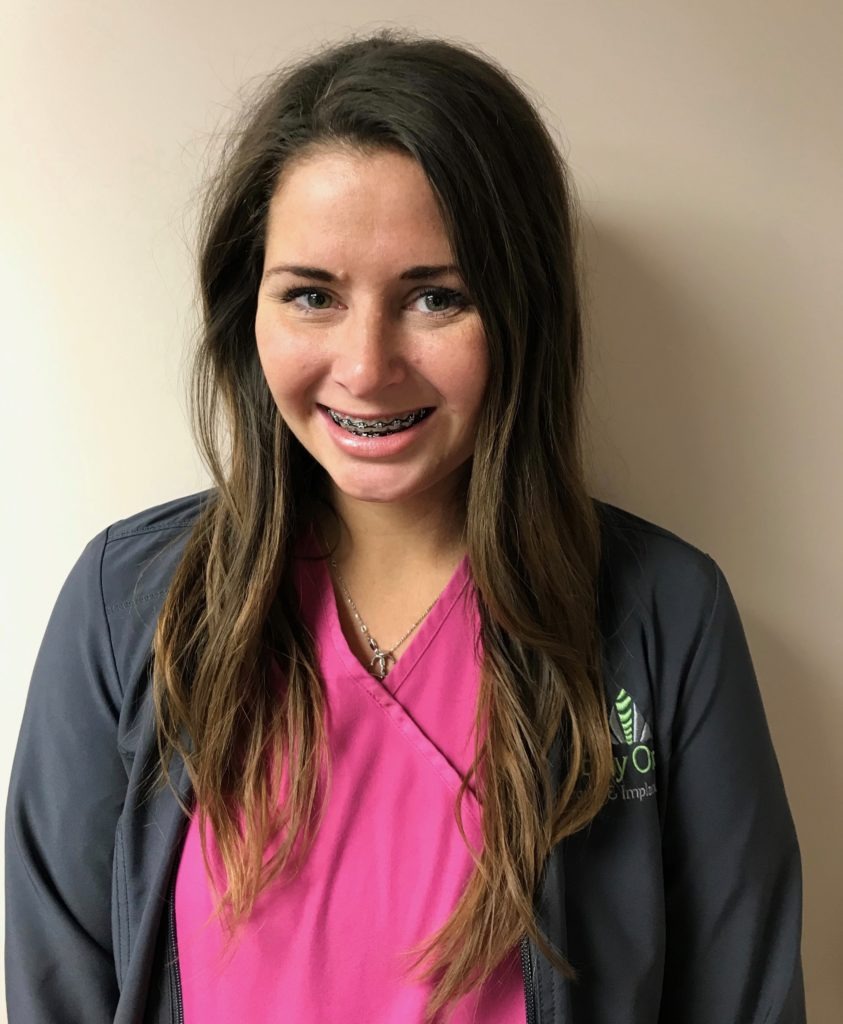
Which locations do you serve?
I work at all four Bay Oral locations.
How long have you been with Bay Oral?
I started at Bay Oral on April 25th, 2016, so almost 4 years.
What is your favorite thing about being a surgical assistant?
I truly enjoy caring for our patients. I enjoy reassuring and comforting them through all stages of their oral surgery.
What are your favorite hobbies?
In my free time I like to go up north with my family.
Amber Plamann
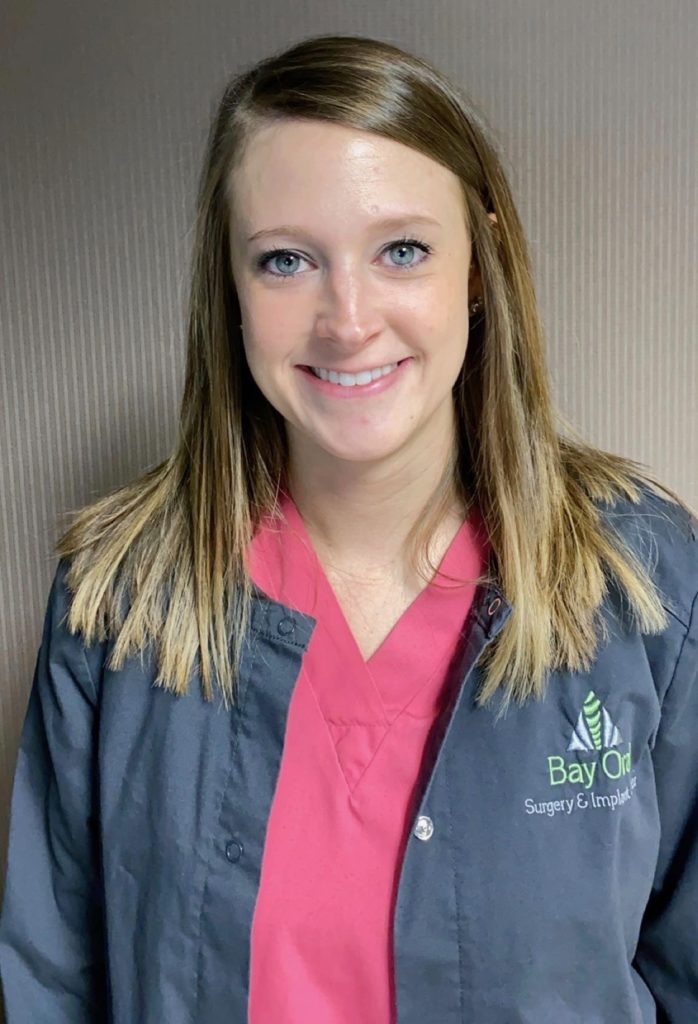
Which locations do you serve?
I work at the Green Bay East and West locations.
How long have you been with Bay Oral?
I started in June 2009, so I’ve been with Bay Oral for 10.5 years.
What is your favorite thing about being a surgical assistant?
I love the fast-paced environment.
What is a fun fact about yourself that people may not know?
I have the biggest irrational fear of frogs!
Carrie Raygo
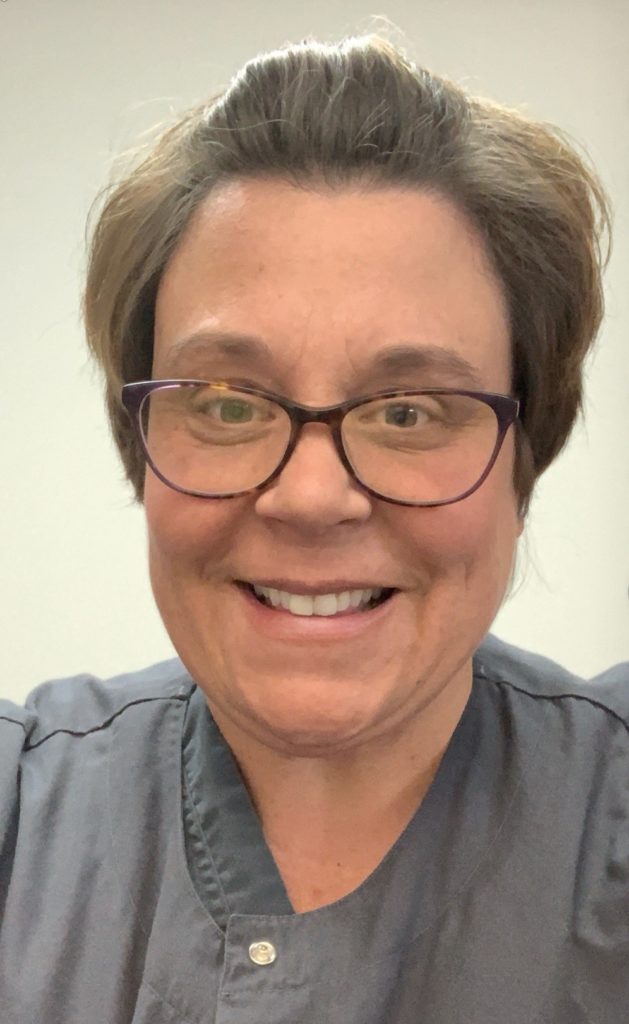
Which locations do you serve?
I primarily work at our Marinette location.
How long have you been with Bay Oral?
I’ve been with Bay Oral for 24 years as a surgical assistant.
What is your favorite thing about being a surgical assistant?
The most rewarding thing about being a surgical assistant is having the opportunity to work with your patient through the process of oral surgery and make it a positive experience for them at our clinic. It always makes me feel good that I helped make that difference for them.
What are your favorite hobbies?
When I’m not working, I enjoy crafting, photography and spending time with my family.
Molly Strobel

Which locations do you serve?
I work mostly at the Green Bay West and East locations.
How long have you been with Bay Oral?
I started with Bay Oral in 2007, so I’ve been here for 13 years and this has been my only dental assisting job.
What is your favorite thing about being a surgical assistant?
I enjoy the patients I get to meet everyday and the people I get to work with–they make coming to work enjoyable.
What is a fun fact about yourself that people may not know and/or your favorite hobbies?
I enjoy this time of year as it is Maple Syrup Season. I’ve been tapping maple trees and making maple syrup for 3 years.
Sophia Styczynski
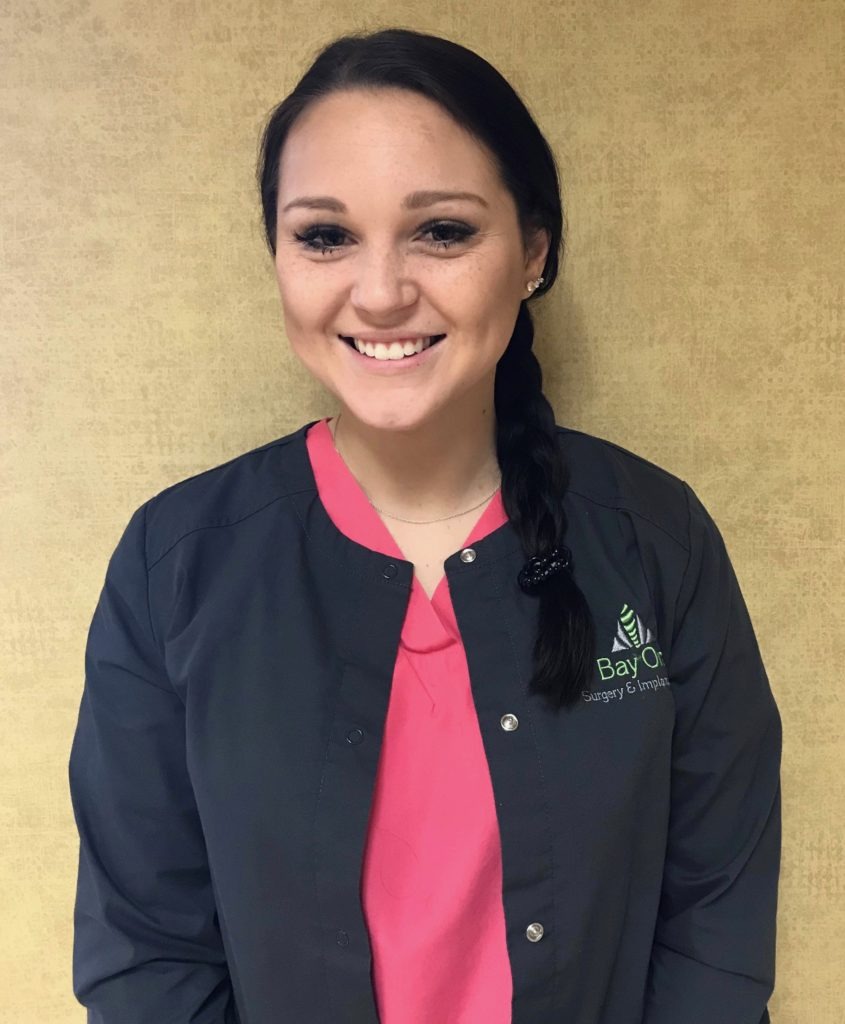
Which locations do you serve?
I work at the Green Bay East and West locations.
How long have you been with Bay Oral?
I graduated in the spring of 2019 as a Dental Assistant and started with Bay Oral on January 2nd, 2020!
What is your favorite thing about being a surgical assistant?
My favorite thing about being a surgical assistant is assisting with a variety of surgeries–no two days are the same!
What are your favorite hobbies?
I love to spend time with my family and friends outdoors riding our UTV’s or boating in the summer. I also love to spend time with my teddy bear puppy Ella!
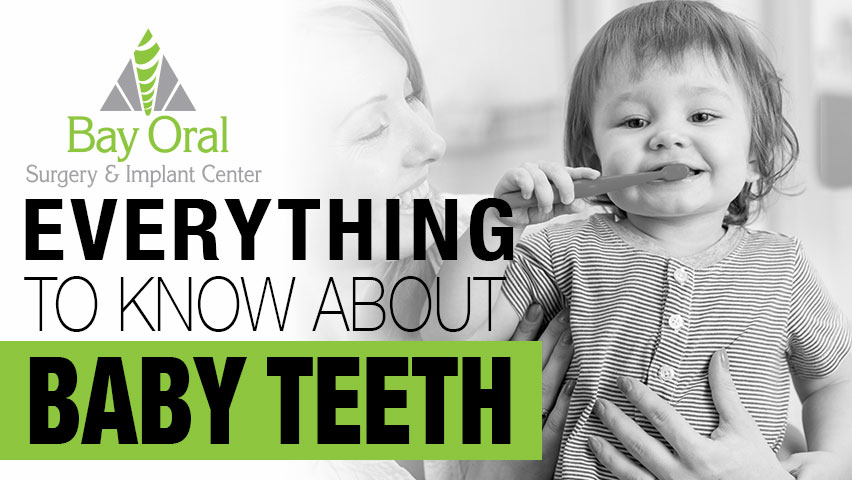
by Bay Oral Surgery | Feb 6, 2020 | Blog

If you have a baby or toddler, it’s important to know what to expect when it comes to their primary (or baby) teeth. Here is a simple guide with everything you need to know about baby teeth.
How many baby teeth are there?
There are typically 20 baby teeth—10 on top and 10 on bottom. However, it is possible for some children to be missing some of their baby and/or adult teeth.
When will baby teeth start coming in?
Baby teeth typically begin to erupt between 6 months to 1 year, and most children will have their full set of baby teeth by the time they are 3 years old.
Is there a certain order in which they appear?
Yes, there is a typical order for teeth to appear, but every child is different so it’s possible that some may not follow this exact order. Typically the front two bottom teeth (central incisors) are the first to appear with the front two top teeth to follow. Here is a great visual from the ADA as well as a link to a very helpful baby teeth eruption chart (click here):
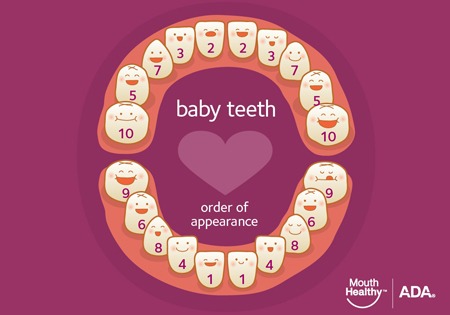
What can help with teething?
It’s not surprising that it is painful for teeth to cut through the gums, so this can cause sore and tender gums in babies. Teething can sometimes also be accompanied by drooling and low-grade fevers. Some ways you can help soothe the pain is by rubbing your child’s gums with a clean finger or a small, cool spoon or giving them a teething ring or toy that has been frozen or refrigerated to chew on. If your child is still cranky, a dose of infant’s or children’s pain reliever may help, but you should consult with your dentist or doctor for the best course of action and for the correct dosage amount based on your child’s age and weight.
When and how to care for baby teeth?
You should start caring for your child’s gums/teeth from the very start. Even before they have teeth, you should clean your baby’s mouth by wiping the gums with a clean, moist washcloth.
As soon as teeth appear you should begin brushing their teeth with a children’s toothbrush using fluoride toothpaste with an amount about the size of a grain of rice. Brush twice a day to establish good habits when they are young. When they start brushing on their own, you should supervise to ensure they are using the correct amount of toothpaste. It is important that they do not use too much and that they do not swallow it.
For children ages 3 to 6, they should use a pea-sized amount of fluoride toothpaste, also brushing twice a day.
Once your child has two teeth that touch you can also begin flossing between their teeth daily.
When to go to the dentist for the first time?
You should take your child to the dentist by age one or within six months of when the first tooth erupts. At the first visit the dentist can check for cavities, examine their teeth/gums and show you how to care for their teeth properly. You may want to consider seeing a pediatric dentist as they specialize in kids and typically make the overall experience more enjoyable for children.
What happens if baby teeth get a cavity?
Even though baby teeth are temporary, it’s still very important to care for them and have cavities treated to ensure they last as long as possible. Untreated cavities can also cause toothaches or infections. Baby teeth are important for a long-term healthy smile. They create a path for permanent teeth to follow and damaged teeth can result in problems with jaw structure and growth. Baby teeth help with chewing, speech development and maintaining proper position of all teeth, so it’s very important to take good care of them and have them treated if there is a problem.
When do the baby teeth start falling out?
Again, every child is different, but the first baby tooth typically falls out around age 6 or 7. And the first to go is typically the first that came in—the bottom two front teeth (central incisors). Baby teeth continue falling out until about age 10 or 12.
When are baby teeth done falling out?
Most kids have 28 permanent, adult teeth by the time they are 12 or 13 years old. There are 32 permanent teeth in all, including the four wisdom teeth. For those who have wisdom teeth, these typically appear anywhere between age 17 and 25.


























